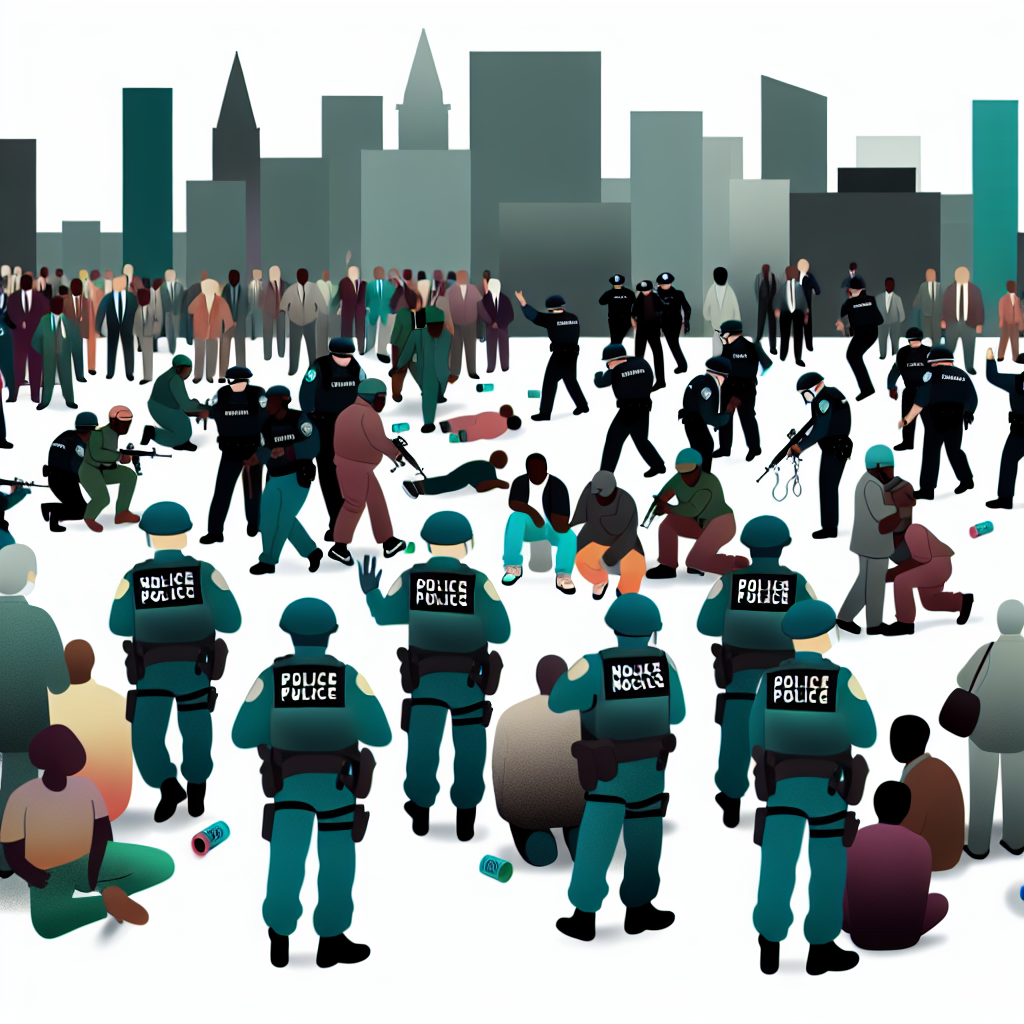🔵 Progressive Analysis
Trump administration nets 1,700 arrests after one month of Memphis crackdown
🤖 AI-Generated Illustration by Mobile Digest
In a city grappling with deep-rooted inequalities and a history of racial injustice, the Trump administration's heavy-handed crackdown in Memphis has resulted in a staggering 1,700 arrests in just one month. This surge, touted as a solution to crime, has instead shed light on the systemic failures t...
In a city grappling with deep-rooted inequalities and a history of racial injustice, the Trump administration's heavy-handed crackdown in Memphis has resulted in a staggering 1,700 arrests in just one month. This surge, touted as a solution to crime, has instead shed light on the systemic failures that continue to plague our society.
The arrests of 126 alleged gang members and the seizure of 293 firearms may seem like a victory on the surface, but we must look deeper. The root causes of crime - poverty, lack of education, and limited economic opportunities - remain largely unaddressed. Instead of investing in communities and providing the resources needed to break the cycle of poverty and violence, the government has chosen to focus on punitive measures that disproportionately target communities of color.
The aggressive tactics employed by the federal task force raise serious concerns about civil liberties and the erosion of trust between law enforcement and the communities they serve. The sheer number of arrests in such a short period suggests a lack of due process and the potential for racial profiling. It is crucial that we hold the government accountable for its actions and demand transparency in the arrest and detention processes.
Moreover, we must question the role of corporations in perpetuating these systemic issues. Many of the firearms seized likely originated from manufacturers who prioritize profits over public safety. It is time for corporate responsibility to extend beyond mere lip service and for companies to actively work towards reducing gun violence and promoting social equity.
The environmental impact of this crackdown cannot be ignored either. The increased presence of law enforcement vehicles and the transportation of detainees contribute to air pollution and greenhouse gas emissions. As we strive for a more just society, we must also consider the ecological consequences of our actions and work towards sustainable solutions.
In the end, the Memphis crackdown is a symptom of a much larger problem. It is a reflection of a society that has failed to address the root causes of crime and has instead relied on punitive measures that only serve to perpetuate cycles of violence and inequality. We must demand better from our leaders, hold corporations accountable, and work towards building a more equitable and just society for all.
The arrests of 126 alleged gang members and the seizure of 293 firearms may seem like a victory on the surface, but we must look deeper. The root causes of crime - poverty, lack of education, and limited economic opportunities - remain largely unaddressed. Instead of investing in communities and providing the resources needed to break the cycle of poverty and violence, the government has chosen to focus on punitive measures that disproportionately target communities of color.
The aggressive tactics employed by the federal task force raise serious concerns about civil liberties and the erosion of trust between law enforcement and the communities they serve. The sheer number of arrests in such a short period suggests a lack of due process and the potential for racial profiling. It is crucial that we hold the government accountable for its actions and demand transparency in the arrest and detention processes.
Moreover, we must question the role of corporations in perpetuating these systemic issues. Many of the firearms seized likely originated from manufacturers who prioritize profits over public safety. It is time for corporate responsibility to extend beyond mere lip service and for companies to actively work towards reducing gun violence and promoting social equity.
The environmental impact of this crackdown cannot be ignored either. The increased presence of law enforcement vehicles and the transportation of detainees contribute to air pollution and greenhouse gas emissions. As we strive for a more just society, we must also consider the ecological consequences of our actions and work towards sustainable solutions.
In the end, the Memphis crackdown is a symptom of a much larger problem. It is a reflection of a society that has failed to address the root causes of crime and has instead relied on punitive measures that only serve to perpetuate cycles of violence and inequality. We must demand better from our leaders, hold corporations accountable, and work towards building a more equitable and just society for all.
